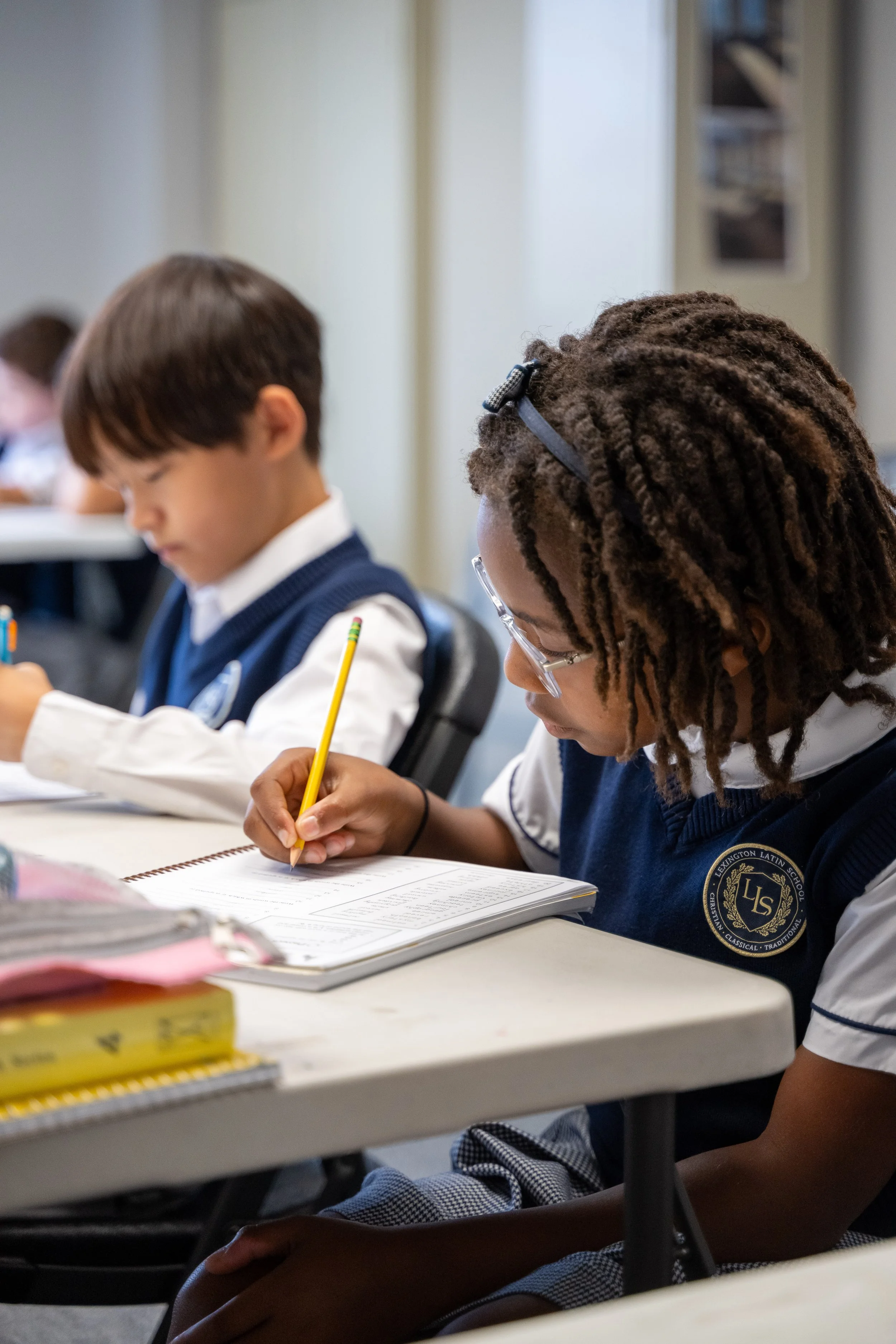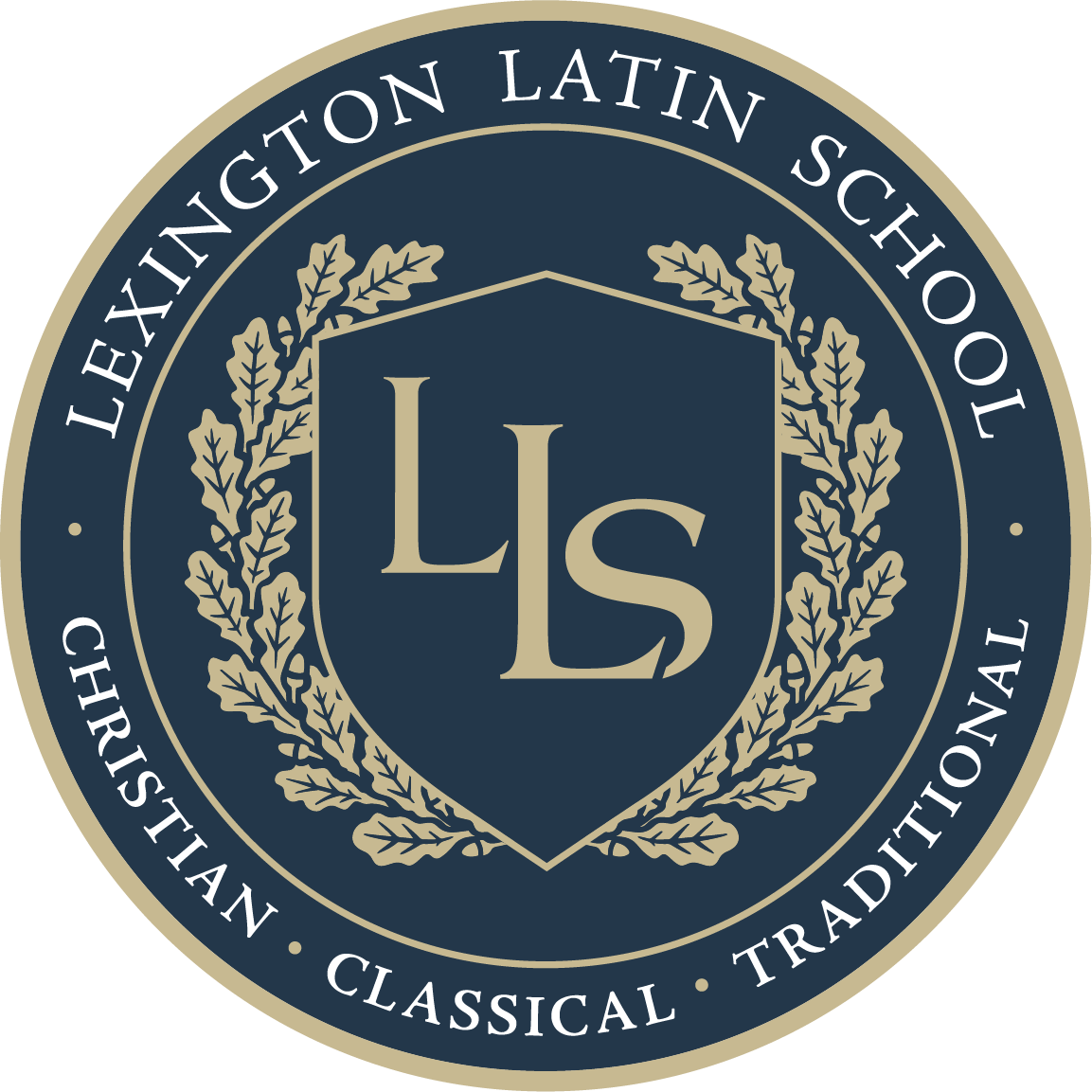
Grammar School 3rd - 6th
Grammar School continues to build upon the important academic and social skills taught in K-2. Students memorize math facts and poems, as well as the entire Latin grammar. It's obvious that children at this age love to memorize—for they love to know something to the point of mastery, and they love to share what they have mastered. Students’ loves are shaped by a study of Scripture, rich literature and poetry, history, math, and science.
Academic Overview
Low student-to-teacher ratio ensures personalized attention and meaningful connections
Grammar School 3rd - 6th Courses
-
Latin develops the mind of the young student as no other subject can. The study of Latin is the core of a classical education. At LLS Latin begins in 2nd grade and continues every year, culminating in the translation of Latin literature in grades 9-12. All new students in both the Lower and Upper Schools are enrolled in an age-appropriate beginning Latin class.
Our Latin curriculum follows a traditional scope and sequence and is consistent with the grammar, logic, and rhetoric stages of the trivium. The Grammar School, grades 3-6 emphasizes the memorization of the Latin Grammar by the time-tested method of oral recitation and form drills.
-
Memoria Press’s Traditional Spelling curriculum continues the phonetic approach to teaching spelling and is the final stage of our primary reading and phonics program.
Students begin a formal study of English Grammar in third grade with Memoria Press’s English Grammar Recitation followed by the traditional Rod and Staff Building Christian English series. This series is designed to develop an understanding of the English language by teaching traditional grammar and mechanics as well as composition. Our composition curriculum includes a combination of the Rod and Staff Building Christian English series and the Institute for Excellence in Writing program. -
The very best English literature and poetry are taught in depth using Memoria Press study guides. Through great literature, students’ affections are trained to love what is good and to recognize the bad through the characters and stories they encounter. They are immersed in a language-rich environment through the contemplation and study of beautiful poetry and stories.
-
Arithmetic is the art of counting and calculation. Like the Latin grammar, arithmetic is concrete, based on memorization, and is a small and finite subject. These characteristics make arithmetic appealing to the child’s mind; it is something that he can understand and achieve mastery over. In the trivium model of learning, arithmetic is the focus of grades K–6. Next to the alphabet, arithmetic is the most useful tool students will ever possess. It should not be rushed over in a hurry to get to higher mathematics.
Building on the foundations taught in the primary school, grammar school students continue in their pursuit of mastering arithmetic. The Rod and Staff textbooks and teaching strategies at LLS ensure that students learn arithmetic and mathematics in an age-appropriate scope and sequence,
Mathematics is an exact language, one that is unrelenting and unforgiving. Students must overlearn basic math skills if they are to be successful in higher-level math classes. These textbooks are carefully chosen, and teachers should be committed to the goals of mastery learning in arithmetic and mathematics.
-
Grammar school students learn the states and capitals, world geography in grades 3-5. In 6th grade students study American history.
-
Students begin their formal study of the Bible in third grade beginning with creation through the death of Moses, in fourth grade they finish the Old Testament, and in fifth grade they study the New Testament. Sixth-grade students complete a review of the major Bible stories of the Old and New Testaments. In addition, they memorize more than 90 of the most memorable and poetic passages of the King James Bible.
For Classical studies, students study Greek myths and Greek, Roman, and Medieval history.
-
Wonder and curiosity about the natural world lead to observation, classification, and ultimately to science and technology. It is best for the child to be led into the world of science through these same steps.
The traditional elementary science curriculum includes topics which are also naturalist hobbies—bird, tree, and wildflower identification, butterflies, insects, bees, and star-gazing. At LLS students learn much about science (morphology, physiology, classification, habitats, etc.) through the detailed study of stars, insects, birds, and trees.
-
Grammar school students have weekly choir classes, using singing as a medium for learning and practicing musical concepts, vocabulary, styles, note reading, and more. All students participate in several chorale ceremonies throughout the school year. In art, grammar school students study the different classical periods of art and imitate these great works in a variety of forms. Beginning in 4th grade, students may choose to participate in either art or orchestra.
-
Grammar School students have Physical Education once a week. PE provides 30 minutes of vigorous exercise as well as opportunities to play childhood games. Our PE instructors work to develop basic motor and motion skills, such as running, skipping, running backwards, and flexibility, as well as sportsmanship and team play.
The Power of Reading Aloud
Reading beautiful literature aloud at all ages provides the benefits of a language-rich environment, ignites the imagination, teaches virtue, and deepens family bonds through a shared experience. It is natural to prioritize reading aloud when your children are young, however, we believe that the habit of reading aloud to your children throughout their years at home develops rhythms that will foster their continued growth as students, shape their love of good literature, and create a lifelong habit of reading.
Students engage in a language-rich environment through studying beautiful literature.







